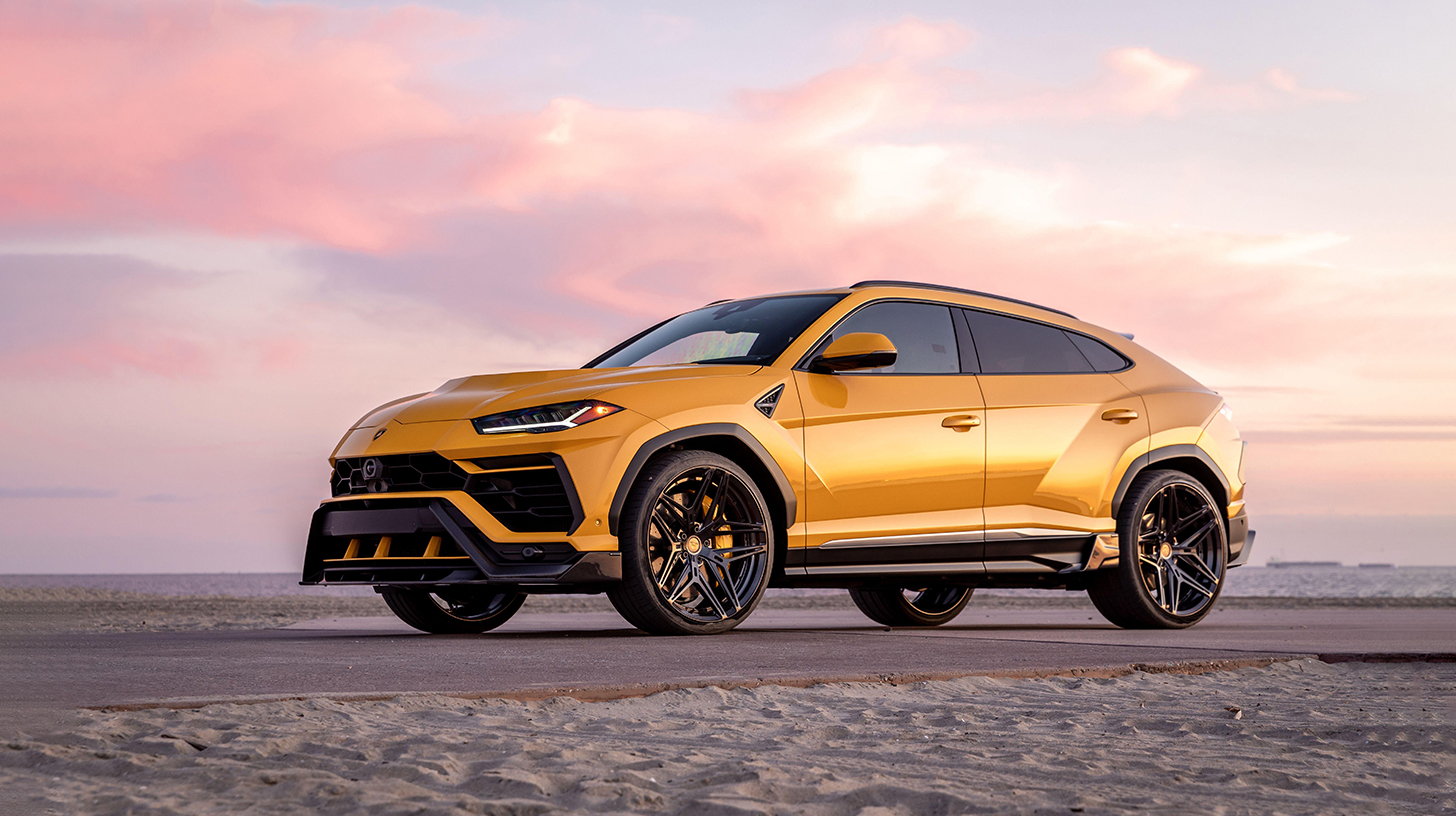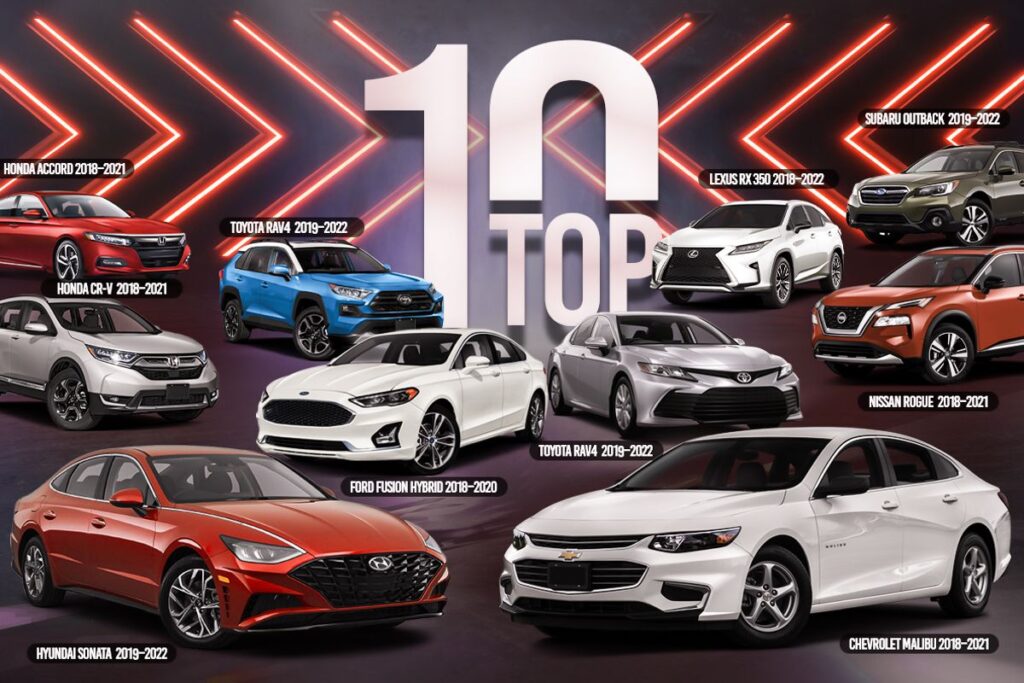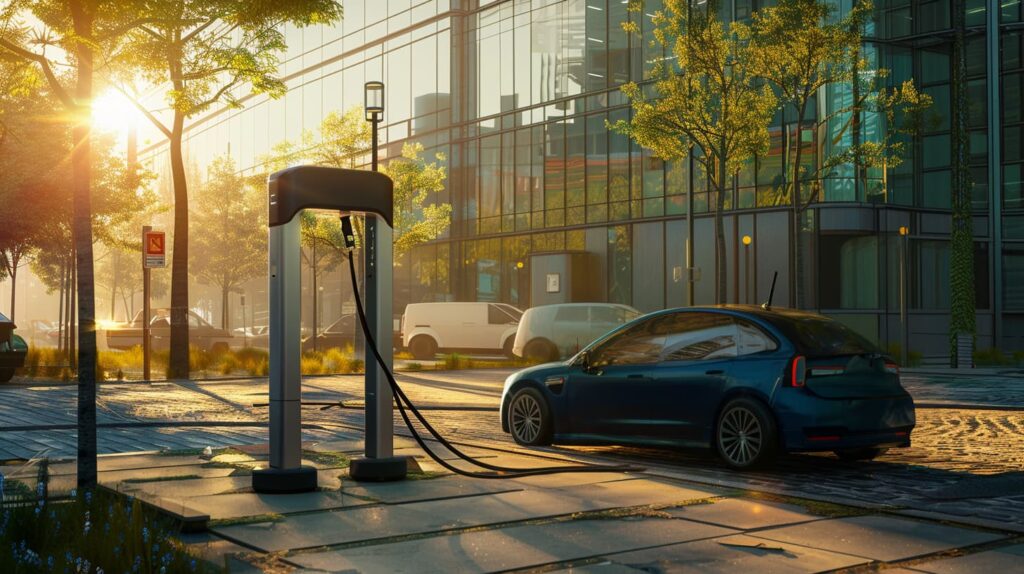Choosing your first car in Georgia has never involved more decisions or more opportunity. In the first quarter of 2025 alone, vehicle imports into Georgia reached USD 622.2 million, representing nearly 15% of all imports. A broader look at January–October shows that motor-car imports soared to USD 3.15 billion, accounting for 21% of Georgia’s total import volume.
What this tells us is clear: the Georgian car market is booming, competitive and evolving. As a first-time buyer, you’re not just choosing a vehicle, you’re navigating a marketplace with rising costs, more import options, and stronger head-winds and advantages than ever before.
In this guide, we walk you through how to set your budget, evaluate what type of car suits you, assess hidden costs (especially with imports), and decide whether buying locally or sourcing from the USA might be your smarter move.
Should You Buy Your First Car Locally or Import From the USA?
Choosing between a locally purchased car and an imported one is one of the biggest decisions first-time buyers in Georgia face. Both options have advantages, but they are not equal in terms of price, reliability, and long-term value. Here’s a clear, honest breakdown to help you decide.
Local Market Overview (Short and Honest)
Price Inflation
Car prices in Georgia have been steadily rising due to import costs, taxes, and high demand. Even older models can be priced unusually high, making it difficult for a first-time buyer to find a good deal within a limited budget.
Limited Model Availability
Local dealers often stock a narrow selection of vehicles. If you’re looking for:
- a specific trim,
- certain safety features,
- low mileage,
- or factory packages,
you may quickly discover that the Georgian market simply doesn’t have what you want.
Risks of Hidden Issues
Cars sold locally may come with:
- undisclosed accident history,
- repaired or replaced parts,
- mileage manipulation,
- or unclear service records.
Without verifiable history, a “good deal” can turn into expensive repairs later.
Benefits of Importing Your First Car
Up to 35% Savings
Importing from the USA often results in significant savings compared to similar cars sold locally. especially for first-time buyers with strict budgets.
Bigger Selection
U.S. auctions offer access to thousands of vehicles:
- sedans,
- SUVs,
- hybrids,
- electric cars,
- premium models,
- specific trims that never reach Georgia’s market.
This means you can pick exactly what suits your needs, not just what’s available.
Verified History (VIN, Carfax, AutoCheck)
Every car has a digital footprint in the U.S. Using a VIN, you can check:
- accident history,
- mileage accuracy,
- maintenance records,
- ownership history,
- flood or structural damage indicators.
This drastically reduces the risk of unpleasant surprises.
Better Condition
U.S. vehicles often come with:
- lower mileage,
- better maintenance,
- advanced safety features,
- higher trim levels compared to many cars on Georgia’s local market.
Transparent Auction Process
You see:
- the exact car condition,
- auction photos,
- damage reports,
- bidding price,
- fees,
- and final sale amount.
No hidden costs and no “mystery history.”
Potential Drawbacks
Delivery Time
Shipping from the USA to Georgia typically takes several weeks. If you need a car immediately, importing may feel slow, although the long-term savings often make it worthwhile.
Auction Deposit
Participating in a U.S. auction requires a security deposit (often around 10%).
This deposit is not a fee, it is fully refundable and simply ensures serious participation.
Who Should Import Their First Car?
Budget-Conscious Buyers
If your priority is maximizing value, importing can stretch your budget much further than buying locally.
People Who Want Long-Term Reliability
U.S. vehicles usually offer better maintenance history and fewer hidden problems, ideal for a first-time owner who wants stability.
EV Buyers
Electric vehicles are often significantly cheaper to import than to buy locally.
Plus, U.S. EVs frequently include improved safety features and battery warranties.
Buyers Who Want Specific Trims or Options
If you care about:
- panoramic roof,
- adaptive cruise control,
- premium audio,
- all-wheel drive,
- extended safety packages, you’re much more likely to find the exact configuration through U.S. auctions.
Why First-Time Buyers Choose Lion Auto
Expert Advisor
A dedicated sales advisor guides you through:
- choosing the right model,
- finding options within your budget,
- understanding maintenance costs,
- comparing several cars before you decide.
Help Avoiding Mistakes
Beginners often overpay or pick cars with hidden issues. Lion Auto handles:
- VIN checks,
- damage analysis,
- price forecasting,
- and risk evaluation so you don’t fall into common traps.
Auction Access
Lion Auto provides direct access to top U.S. auctions, including exclusive access through an alliance with IAA, giving you a broader, safer, and more affordable pool of vehicles.
Logistics Handled End-to-End
We coordinate:
- U.S. transport to port,
- overseas shipping,
- customs clearance,
- delivery to Poti terminal,
- and final vehicle handover.
Meaning you don’t need to manage any complex logistics yourself.
How to Define Your Budget (Realistically)
Before choosing models, trims, or engine types, the most important step for any first-time buyer is defining a realistic, all-inclusive budget. Many beginners focus only on the car’s sticker price and end up surprised by additional expenses they didn’t anticipate. Below is a clear framework to help you understand the true cost of buying your first car in Georgia, whether locally or through U.S. import.
1. Start With Your Maximum Purchase Budget
Your “headline” vehicle budget should answer two questions:
How much can you afford to spend upfront?
For many first-time buyers in Georgia, this number typically falls between:
- $6,000–$10,000 for budget sedans and hatchbacks
- $10,000–$18,000 for crossovers and SUVs
- $15,000–$25,000+ for EVs and premium models
Buying through U.S. auctions often allows you to get newer, better-equipped vehicles within the same price range.
If using financing, what is your comfortable monthly payment?
Consider a monthly amount you can pay without pressure. This helps determine:
- down payment
- loan duration
- total budget
- whether leasing makes sense
Lion Auto can assist with financing calculations, using your preferred monthly payment to determine which vehicles fit your budget.
2. Calculate Total Ownership Costs (Not Just the Purchase Price)
A car’s true cost includes more than the vehicle itself. Make sure to factor in:
Insurance
Depending on the vehicle and coverage:
- $250–$600 per year for basic insurance
- Higher for premium models or EVs
Fuel or Electricity
- Gasoline: Georgia’s average fuel cost makes high-consumption SUVs more expensive long-term
- Electricity: EVs cost significantly less to operate
Routine Maintenance
Estimate:
- $150–$400 per year for Japanese/Korean cars
- $400–$700+ per year for European premium brands
Parking
If you live in Tbilisi’s central areas, parking may cost extra.
Unexpected Repairs
Set aside:
- $200–$300 for minor issues
- More for older European vehicles
3. Understand Import-Related Costs (If You Buy From the USA)
Importing can save you up to 35%, but your budget should include predictable steps:
Auction Purchase Price
This is the final amount the car sells for in the U.S.
Auction Fees
IAA or Copart auction fees vary by:
- final price
- auction type
- vehicle category
Your Lion Auto advisor provides exact fee predictions before bidding.
U.S. Inland Transport
Transport from the auction yard to the port.
Overseas Shipping to Georgia
Shipping to Poti port: a fixed, transparent cost.
Customs Clearance & Taxes
Depends on:
- engine size
- age
- vehicle category
Lion Auto provides a detailed cost breakdown before purchase so you know exactly what to expect.
4. Choose Your Budget Based on Long-Term Needs
Your budget should reflect how you plan to use your car:
Daily City Driving?
Choose:
- small sedan or hatchback
- hybrid
- compact EV
Family Car?
Budget more for:
- SUV
- crossover
- safety features
Long Road Trips?
Consider:
- comfortable seats
- reliable engine
- AWD (if needed)
- moderate fuel consumption
Your Lion Auto advisor can help match your usage with realistic budget brackets.
5. Avoid the #1 Mistake First-Time Buyers Make
Many beginners spend their entire budget on the purchase price, leaving nothing for:
- taxes
- plates
- insurance
- first maintenance
- minor repairs
A safer approach is Use the 80/20 Rule:
- 80% for the vehicle itself
- 20% reserved for additional costs
This ensures your first months of ownership are stress-free.
6. How Lion Auto Helps First-Time Buyers Budget Correctly
Lion Auto provides:
- complete cost transparency before bidding
- a line-by-line breakdown of every expense from auction to delivery
- guidance on choosing cars that won’t exceed your total budget
- predictions on repair costs if the vehicle is lightly damaged
- access to financing options so your monthly payment stays comfortable
This structured approach helps you avoid overspending and choose a car that fits both your needs and your long-term financial comfort.
Identify Your Needs Before Choosing a Car
Once you establish your budget, the next crucial step is understanding what you actually need from your first car. Buying a car that doesn’t fit your lifestyle can quickly turn an exciting purchase into an expensive inconvenience. The goal here is simple: match the car to your real-world habits, not just your wish list.
Below are the key considerations that help first-time buyers in Georgia make the right decision.
1. How Will You Use the Car Daily?
Start with your primary driving environment:
City Driving (Tbilisi, Batumi, Kutaisi)
You’ll benefit from:
- compact size
- easy parking
- low fuel consumption
- good visibility in traffic
Ideal options: sedan, hatchback, compact SUV, EV.
Mixed Driving (City + Highway)
You’ll need:
- stronger engine
- better stability at higher speeds
- comfortable seats for long rides
Ideal options: sedan, crossover, hybrid.
Long-Distance or Weekend Trips
Look for:
- comfortable suspension
- larger fuel tank or battery range
- more cargo space
Ideal options: SUV, crossover, EV with long range.
2. Passenger Capacity
Ask yourself:
- Do you drive alone most of the time?
- Do you often carry family or friends?
- Do you need space for a child seat?
- Do you need three seats in the back?
If you carry passengers often, prioritize:
- rear seat space
- comfort
- safety ratings
If you rarely carry passengers, a smaller, more economical car may suit you better.
3. Cargo and Trunk Space
Consider:
- grocery runs
- luggage for weekends
- sports equipment
- strollers
- tools or work-related items
If trunk space matters, focus on:
- hatchbacks
- crossovers
- SUVs
- sedans with deep trunk space
You don’t want to discover after purchase that your suitcase doesn’t fit.
4. Parking and Maneuverability
If you live or work in central Tbilisi:
- parking is limited
- spaces are tight
- parallel parking is frequent
Compact cars, hatchbacks, and small crossovers offer:
- easier maneuvering
- lower risk of scratches
- less stress during daily driving
5. Fuel Efficiency & Daily Cost
Your daily commute affects your long-term expenses.
If you drive a lot:
- choose fuel-efficient models
- consider hybrid or EV
- avoid high-consumption SUVs unless you truly need one
If you drive occasionally:
- fuel economy is still helpful
- but comfort or size may matter more
Lion Auto advisors can show you real fuel consumption estimates, not the unrealistic numbers often listed by sellers.
6. Safety & Comfort Features
For first-time buyers, certain safety features make a huge difference:
- multiple airbags
- ABS + ESP
- lane assist
- blind-spot monitoring
- reversing camera
- parking sensors
- adaptive cruise control
Comfort features such as:
- heated seats
- good A/C
- ergonomic seating become essential if you spend long hours driving.
U.S. vehicles often include higher trim-level safety features that are rare in locally sold cars.
7. Reliability vs Performance
As a first-time owner, reliability should almost always come first.
Ask yourself:
- Do you want a worry-free, low-maintenance car?
- Or do you want performance, even if maintenance costs rise?
Reliable brands for first-time owners:
- Toyota
- Honda
- Hyundai
- Kia
Higher-maintenance premium brands:
- BMW
- Mercedes
- Audi
Lion Auto advisors guide you toward models that match both your budget and maintenance expectations.
8. Special Requirements (If Applicable)
Depending on your lifestyle, you may need:
All-Wheel Drive (AWD)
- mountain trips
- winter driving
- unpaved roads
Electric Vehicle (EV)
- low running costs
- easy city driving
- silent, modern driving experience
Hybrid
- great for Tbilisi traffic
- good range
- low fuel usage
Higher Ground Clearance
- rural roads
- uneven surfaces
- countryside trips
Being clear about these needs prevents you from buying a car that looks good but performs poorly in your daily routine.
How Lion Auto Helps You Define Your Needs
First-time buyers often struggle to balance:
- budget
- lifestyle
- reliability
- long-term costs
Lion Auto’s advisors walk you through:
- your typical driving habits
- your required safety features
- your comfort preferences
- the most suitable car categories
- recommended models in your budget
Whether you want a compact EV or a family SUV, the team helps you find the option that fits your life, not just your wallet.
Choose the Type of Car That Matches Your Lifestyle
Once you understand your daily needs and driving habits, the next step is choosing the right type of vehicle. Every body type offers unique advantages and drawbacks and selecting the wrong one can affect comfort, safety, long-term costs, and overall satisfaction.
Below is a clear breakdown of the most common car types for first-time buyers in Georgia, including who they’re best suited for and what to expect from each.
1. Sedan: Practical, Comfortable, and Ideal for Daily Driving
Sedans are one of the most popular choices for first-time buyers because they offer a balanced mix of comfort, economy, and affordability.
Pros
- Excellent fuel efficiency
- Smooth, comfortable ride
- Affordable maintenance
- Great for city + highway driving
Cons
- Lower ground clearance (not ideal for rural roads)
- Less cargo flexibility compared to hatchbacks and SUVs
Best For
- Students
- Young professionals
- Daily Tbilisi commuters
- Drivers who value comfort and lower running costs
Recommended examples (commonly imported from USA):
Toyota Camry, Honda Accord, Hyundai Sonata, Nissan Altima
2. Hatchback: Compact, Easy to Park, and Surprisingly Spacious
Hatchbacks offer maximum practicality in a small footprint, perfect for crowded city areas.
Pros
- Very easy to park
- Lower fuel costs
- Flexible trunk space (rear seats fold flat)
- Affordable repairs
Cons
- Smaller cabin than sedans and SUVs
- Not ideal for long road trips with many passengers
Best For
- City drivers
- First-time owners living in densely populated zones
- Drivers who value easy maneuvering
Recommended examples:
Honda Fit, Toyota Yaris, Hyundai i30, VW Golf
3. SUV/Crossover: Spacious, Versatile, and Great for Families
SUVs and crossovers are the most popular imported category from the USA due to their comfort, safety features, and practicality.
Pros
- High seating position and visibility
- Great for Georgian highways and rougher roads
- Lots of cargo room
- Strong safety ratings
- Ideal for families
Cons
- Higher fuel consumption
- Higher maintenance costs
- Larger size can be challenging in tight parking areas
Best For
- Growing families
- Long-distance travelers
- Drivers needing extra cargo space
- People who want better ground clearance
Recommended examples:
Toyota RAV4, Honda CR-V, Hyundai Tucson, Kia Sportage
4. Electric Vehicles (EVs): Low Running Costs and Ideal for City Driving
Demand for EVs is growing rapidly in Georgia, especially with the availability of affordable EVs imported from China and the U.S.
Pros
- Extremely low running costs
- Quiet, modern driving experience
- No oil changes or typical engine repairs
- Perfect for city traffic
- Instant torque (fast acceleration)
Cons
- Requires reliable charging access at home or nearby
- Winter range may be lower
- Higher initial purchase price (but cheaper long-term)
Best For
- Daily city commuters
- Drivers with charging access
- People who want technology-forward vehicles
- Budget-focused buyers who want low upkeep
Popular models:
Tesla Model 3/Y, Volkswagen ID.4, Nissan Leaf, Hyundai Kona EV, Honda MNV
5. Hybrid: The Smart Middle Ground Between Fuel Efficiency and Convenience
Hybrids offer excellent fuel savings without relying on charging stations.
Pros
- Excellent fuel economy
- Great for stop-and-go Tbilisi traffic
- Lower maintenance than gasoline engines
- No need for external charging
Cons
- Slightly higher initial cost than gasoline cars
- Battery repair is expensive (but rare)
Best For
- Heavy city drivers
- Drivers who want low fuel expenses without EV charging
- People who value reliability and comfort
Popular models:
Toyota Prius, Toyota Camry Hybrid, Honda Accord Hybrid, Hyundai Ioniq
6. Sports Cars: Fun, Fast, and Not Always Ideal for First-Time Buyers
Sports cars look exciting, but they come with responsibilities.
Pros
- High performance
- Attractive design
- Engaging driving experience
Cons
- High insurance
- Higher fuel consumption
- Not great for Georgian roads or daily commuting
- Costly repairs and parts
Best For
- Enthusiasts
- Weekend drivers
- People who have a second primary car
Popular models:
Ford Mustang, Dodge Charger, Subaru BRZ
Which Car Type Is Right for You? Lion Auto Helps You Decide
Choosing the right vehicle type can be overwhelming, especially when you’re buying your first car. Lion Auto’s advisors help you evaluate:
- your daily driving habits
- long-distance needs
- passenger frequency
- fuel budget
- parking situations
- long-term ownership costs
- comfort and safety priorities
With access to thousands of vehicles from U.S. auctions, Lion Auto helps you find the perfect match, whether you need a compact city car or a family-friendly SUV.
Check the Vehicle’s History (VIN, Carfax, AutoCheck)
Before committing to any used car, especially as a first-time buyer, the most important step is verifying its true history. A car that looks perfect in photos may have accident damage, flood exposure, odometer rollback, or repeated mechanical issues that aren’t visible at first glance.
In the United States, every vehicle leaves a digital trace. Understanding this information protects you from hidden risks and ensures you’re investing in a safe, reliable car.
1. Start With the VIN (Vehicle Identification Number)
The VIN is the car’s unique fingerprint, a 17-digit code that reveals essential information such as:
- manufacturing year
- engine type
- trim level
- original features
- country of manufacture
- model-specific details
Using the VIN, you can check the car’s full history, even if it has changed owners multiple times.
Where VIN checks matter most
- imported vehicles
- repaired cars
- cars with suspiciously low mileage
- cars sold below market price
- heavily discounted listings
With Lion Auto, the VIN check is always included before bidding on any car.
2. Carfax Report — The Industry Standard for Vehicle History
A Carfax report provides detailed insight into a vehicle’s past based on U.S. data sources.
What Carfax shows
- accident history
- mileage records
- service and maintenance logs
- ownership history
- title status (clean, salvage, rebuilt)
- flood or fire damage indicators
- recalls and manufacturer service campaigns
- auction sales timeline
Why first-time buyers should care
Carfax helps you avoid cars with:
- hidden damage
- illegal odometer rollback
- recurring mechanical problems
Lion Auto checks Carfax and other U.S. databases to ensure every recommended car is safe and transparent.
3. AutoCheck — Another Crucial U.S. Vehicle Database
AutoCheck is similar to Carfax but sometimes includes additional data.
What AutoCheck adds
- auction history
- score comparison against similar vehicles
- accident severity
- title verification
- detailed owner transitions
AutoCheck’s scoring system is especially useful for first-time buyers because it rates the car against thousands of similar vehicles, making it easier to judge its quality.
4. Auction Photos & Damage Reports
U.S. auctions provide:
- high-resolution photos from all angles
- interior photos
- engine bay photos
- chassis and undercarriage photos
- detailed damage markings (IAAI/Copart grids)
- condition descriptions
This level of transparency is far superior to what is typically available in the Georgian market.
Why this matters
You can see:
- the exact location of damage
- which parts may need replacement
- whether airbags have deployed
- if the car is lightly damaged or requires structural work
Lion Auto’s advisors help interpret damage reports and estimate repair costs before you decide to bid.
5. Compare Photos Before and After Transportation (If Already Imported)
If you’re considering a car sold in Georgia, compare:
- U.S. auction photos
- current photos in Georgia
This protects you from:
- hidden repairs
- cosmetic-only fixes hiding deeper issues
- safety components replaced with cheap alternatives
Lion Auto always shows original U.S. auction photos to guarantee transparency.
6. Title Status — One of the Most Important Factors
Every U.S. vehicle has a title describing its condition.
Common title types
- Clean Title: no major accidents or total loss
- Salvage Title: declared total loss (but can be a great deal if repaired properly)
- Rebuilt Title: repaired and inspected after a major incident
- Flood / Hail / Fire: high-risk categories
- Lien / Repossession Titles: financial claims
What first-time buyers should avoid
- flood-damaged cars
- fire-damaged cars
- cars with undisclosed structural damage
Lion Auto screens out high-risk categories unless a client specifically wants them and understands the risks.
7. Odometer Verification
Mileage manipulation is common in some markets, but much harder in the U.S.
VIN-based checks verify:
- mileage readings from inspections
- maintenance logs
- auction entries
- dealership visits
This ensures you get a car with true mileage, not an artificially lowered number.
8. How Lion Auto Helps You Avoid Risk
Vehicle history analysis is one of Lion Auto’s strongest areas of expertise.
Every car recommended by our team is checked for:
- accident severity
- structural damage
- airbag deployment
- water/flood indicators
- mileage accuracy
- true market value
- expected repair costs
Our advisors explain the history report in simple terms, ensuring you know exactly what you’re buying before spending a single lari.
Comprehensive Car Type Comparison Table (for First-Time Buyers in Georgia)
| Car Type | Pros | Cons | Best For | Typical Import Budget | Annual Maintenance Cost | Fuel/Energy Cost | Parking & Maneuvering | Parts Availability |
|---|---|---|---|---|---|---|---|---|
| Sedan | Comfortable ride, great fuel economy, affordable repairs | Lower ground clearance, limited cargo flexibility | City + highway drivers, professionals | $8,000–$14,000 | $150–$400 | Low | Easy | Excellent |
| Hatchback | Easy to park, low running costs, flexible trunk | Smaller cabin, less comfortable for long trips | City drivers, students, small families | $6,000–$12,000 | $120–$350 | Very low | Very easy | Excellent |
| SUV / Crossover | Spacious, safe, good for Georgian roads, high visibility | Higher fuel use, higher maintenance | Families, long-distance drivers, rural areas | $12,000–$22,000+ | $300–$700 | Medium to high | Medium | Very good |
| Hybrid | Exceptional fuel economy, great for traffic, smooth drive | Higher initial price, costly battery repair if needed | Commuters, budget-conscious drivers | $10,000–$18,000 | $200–$400 | Very low | Easy | Very good |
| Electric Vehicle (EV) | Lowest running costs, no engine repairs, smooth & modern | Needs charging access, winter range drops | City drivers, eco-conscious buyers | $14,000–$25,000+ | $80–$200 (minimal) | Super low | Easy | Good (model-dependent) |
| Sports Car | Fast, stylish, exciting to drive | High insurance, high fuel, not ideal for Georgian roads | Enthusiasts, weekend drivers | $12,000–$25,000+ | $400–$900 | High | Hard | Moderate to low |
Common Mistakes First-Time Car Buyers Make (And How to Avoid Them)
Buying your first car is exciting, but it’s also where beginners make the most costly mistakes. Simple oversights can lead to higher long-term expenses, mechanical problems, or paying far more than the car is worth.
Below are the most common mistakes first-time buyers in Georgia make, along with clear guidance on how to avoid them.
1. Focusing Only on the Purchase Price
Many new buyers look only at the sticker price and forget about the full cost of ownership.
Why it’s a mistake
You also need to budget for:
- insurance
- fuel
- parking
- annual maintenance
- unexpected repairs
- customs fees (if importing)
- auction fees and transportation
How to avoid it
Follow the 80/20 rule:
- 80% of your budget for the car
- 20% reserved for additional costs
Lion Auto provides a line-by-line cost breakdown before you purchase anything.
2. Choosing the Wrong Type of Car for Your Lifestyle
A car can look perfect on paper, but be completely wrong for your daily routine.
Common mismatches:
- Buying a large SUV but living in a tight parking area
- Choosing a small hatchback but needing space for family trips
- Buying a premium car without considering high maintenance
- Choosing a slow-charging EV without home charging access
How to avoid it:
Use a simple question:
“Where will I drive 80% of the time?”
Lion Auto advisors help match your real-life needs with the right model.
3. Ignoring the Vehicle’s History Report
Some first-time buyers rely only on photos or seller descriptions.
Why it’s a mistake:
Without VIN checks, you risk buying a car with:
- previous accidents
- flood damage
- odometer rollback
- structural repairs
- unsafe modifications
- major repair history
How to avoid it:
Always request:
- Carfax
- AutoCheck
- Auction photos
- Title status
Lion Auto performs complete history checks before recommending any car.
4. Underestimating Maintenance Costs
A car that seems affordable upfront may require expensive repairs.
High-risk cases:
- older European cars
- turbocharged engines
- rare trims with hard-to-find parts
- hybrid batteries near end-of-life
How to avoid it:
Understand the annual cost of the model you want and ask:
- “Is this car cheap to maintain in Georgia?”
- “Are parts easily available?”
Lion Auto guides you toward low-maintenance, reliable models ideal for first-time owners.
5. Buying Based on Emotion, Not Research
First-time buyers often fall in love with:
- how the car looks
- the color
- a specific feature
- a cheap price tag
Instead of evaluating:
- safety
- mechanical condition
- long-term costs
- real needs
How to avoid it:
Don’t make a decision based on excitement alone.
Evaluate condition, history, reliability, and total cost before anything else.
Lion Auto advisors help you compare multiple options objectively.
6. Skipping the Test Drive
Even a perfect-looking car may drive poorly.
Without a test drive, you may miss:
- alignment issues
- steering vibration
- noisy suspension
- weak brakes
- poor visibility
- uncomfortable seating
How to avoid it:
Test-drive a similar model in Georgia if importing, and test your exact car once it arrives.
Lion Auto helps you understand what feels normal and what indicates a problem.
7. Rushing the Decision
Beginners often:
- buy the first good deal
- don’t compare alternatives
- skip research
- accept incomplete information from sellers
How to avoid it:
Review several options, compare prices, and analyze each car’s pros and cons.
Lion Auto provides multiple vehicle options within your budget and explains differences clearly.
8. Not Considering Resale Value
Some cars lose value faster than others.
Why it matters:
Even your first car might be sold later, so resale value affects future budget.
Cars with strong resale value (Georgia market):
- Toyota
- Honda
- Hyundai
- Kia
Cars with faster depreciation:
- some European luxury models
- niche trims
- older EVs with small batteries
Lion Auto helps you choose models with stable long-term value.
9. Trusting Unverified Local Sellers
Many local listings hide:
- post-accident repairs
- repainted panels
- engine or gearbox issues
- airbag replacements
- flood damage
- unreported repairs
How to avoid it:
Always compare:
- U.S. auction photos
- current condition
- VIN reports
Lion Auto ensures you know exactly what you are buying.
10. Choosing a Car Without Expert Guidance
For first-time buyers, navigating auctions, history reports, and logistics alone is overwhelming.
How to avoid it:
Work with experienced professionals who:
- check history reports
- analyze damage
- predict repair costs
- compare models
- manage shipping
- handle customs
- ensure transparency
Lion Auto supports you at every step, helping you avoid expensive mistakes and choose a car you’ll be happy with for years.
Why First-Time Buyers Choose Lion Auto
Buying your first car should feel exciting, not stressful. That’s why thousands of buyers in Georgia rely on Lion Auto for a safer, clearer, and more affordable experience. Instead of navigating auctions, researching hidden damage, or worrying about shipping, you get expert support from the very first step to the moment your car arrives in Tbilisi.
Here’s what makes Lion Auto the smartest choice for first-time buyers.
1. A Dedicated Expert Who Guides You Through Everything
First-time buyers often struggle with technical details like VIN reports, auction rules, damage assessment, and market pricing.
With Lion Auto, you get:
- a personal sales advisor
- detailed explanations of every option
- transparency on condition, history, and costs
- help comparing models and avoiding mistakes
This turns a complex process into a simple, confident decision.
2. Access to Trusted U.S. Auctions With Verified History
Lion Auto gives you access to:
- IAA, our exclusive market partner
- Copart
- Manheim
- other top U.S. auction platforms
Every vehicle is checked with:
- VIN-based history reports (Carfax or AutoCheck)
- complete auction photos
- title status verification
- condition and damage analysis
This means you choose from real, verified cars, not risky local listings.
3. Up to 35% Savings Compared to the Local Market
Because we buy directly from U.S. auctions and manage logistics in-house, many first-time buyers save:
- 25–35% on the final price
- even more on EVs and Japanese brands
- thousands of lari by avoiding hidden repairs found in local markets
You get higher quality and better prices.
4. Seamless Logistics — Lion Auto Handles Everything
Importing a car alone can involve:
- contacting the auction
- paying multiple fees
- arranging inland transport
- booking container shipping
- clearing customs
- managing unloading at port
Lion Auto handles all of this in-house through Lion Trans and our exclusive terminal in Poti.
You receive:
- fast, secure transport
- clear communication
- full visibility of each step
- no stress about shipping or paperwork
5. Honest, Transparent Pricing With No Surprises
First-time buyers are most afraid of “hidden costs.”
Our process removes uncertainty by giving you:
- clear cost calculation
- deposit explanation
- step-by-step payment timeline
- expected shipping dates
- full import cost transparency
You always know what you’re paying for and why.
6. Better Condition Cars, Chosen With Precision
Because you see the full history and original auction images, you know exactly what you’re buying.
Lion Auto selects cars with:
- minimal or cosmetic damage
- good service history
- clean titles
- low total cost of repair
This means fewer surprises, fewer repairs, and a longer-lasting car.
7. A Safer Choice for First-Time EV Buyers
EVs are among the most commonly imported first cars today.
Lion Auto helps you choose the right one by analyzing:
- battery health
- charging type
- range
- accident history
- climate impact on battery life
You get a reliable EV, not a problem waiting to happen.
Buying Your First Car Doesn’t Have to Be Hard — Lion Auto Makes It Simple
Whether you’re budget-conscious, looking for reliability, or want the best possible car for your lifestyle, Lion Auto helps you make a smart, safe, and confident decision.
Ready to find your first car?
Speak with a Lion Auto advisor today, we’ll help you choose the right model, navigate the process step by step, and avoid every mistake beginners usually make.







